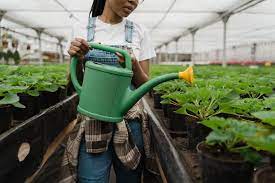Small-scale farming initiatives play a pivotal role in fostering sustainable agriculture, enhancing food security, and promoting rural development in diverse contexts around the world. In this article, we delve into the significance, principles, challenges, and innovative approaches of small-scale farming initiatives, highlighting their contributions to local economies, social cohesion, and environmental sustainability. Watch YouTube Shorts on Farming.
Understanding Small-Scale Farming
Small-scale farming refers to agricultural production systems characterized by limited landholdings, modest capital investment, and family-based labor arrangements. These farming initiatives often prioritize diversified cropping systems, agroecological practices, and community-based approaches to address the unique needs and challenges of smallholder farmers and rural communities.
Importance of Small-Scale Farming
Food Security:
Small-scale farmers contribute significantly to local and regional food supplies, providing diverse and nutritious crops for household consumption and local markets.
Livelihoods:
Small-scale farming supports the livelihoods of millions of rural households, generating income, employment, and economic opportunities in remote and marginalized areas. YouTube Shorts on Harvesting.
Environmental Sustainability:
Small-scale farming initiatives often emphasize agroecological principles, soil conservation, and biodiversity conservation, promoting sustainable land management and ecosystem resilience.
Social Cohesion:
Small-scale farming fosters social networks, community solidarity, and cultural traditions, strengthening social capital and resilience to external shocks and stresses.
Principles of Small-Scale Farming Initiatives
Small-scale farming initiatives are guided by several key principles:
1. Agroecological Practices
Diversification:
Diversified cropping systems, intercropping, and crop rotation enhance soil fertility, pest management, and resilience to climate variability.
Soil Health:
Soil conservation, organic amendments, and minimal tillage practices promote soil health, water retention, and nutrient cycling.
Biodiversity:
Agroecological farming systems prioritize biodiversity conservation, habitat restoration, and genetic diversity to enhance ecosystem services and resilience.
2. Participatory Approaches
Community Engagement:
Small-scale farming initiatives engage farmers, local communities, and stakeholders in decision-making, planning, and implementation processes. Best YouTube Shorts
Knowledge Sharing:
Peer-to-peer learning, farmer field schools, and extension services facilitate knowledge exchange, capacity-building, and innovation diffusion among small-scale farmers.
3. Market Access and Value Addition
Market Linkages:
Access to markets, value chains, and fair trade networks enables small-scale farmers to diversify income sources, negotiate better prices, and access premium markets for their products.
Value Addition:
Small-scale farmers add value to agricultural products through processing, packaging, and branding initiatives, creating opportunities for entrepreneurship and income generation.
Challenges Facing Small-Scale Farming
Despite their importance, small-scale farming initiatives face numerous challenges:
1. Limited Resources and Access
Land Tenure:
Insecure land rights, land fragmentation, and land tenure issues constrain small-scale farmers’ access to land, credit, and agricultural inputs. YouTube Shorts on Harvesting.
Financial Constraints:
Limited access to credit, insurance, and financial services hinders investment, productivity, and resilience in small-scale farming operations.
2. Market Access and Infrastructure
Transportation:
Poor infrastructure, inadequate roads, and transportation networks impede market access, supply chain efficiency, and trade opportunities for small-scale farmers.
Market Distortions:
Unfair trade practices, market monopolies, and price volatility disadvantage small-scale farmers, reducing their bargaining power and profitability.
3. Climate Change and Environmental Degradation
Climate Variability:
Increasing frequency and intensity of extreme weather events, such as droughts, floods, and storms, pose risks to small-scale farming livelihoods, food security, and resilience.
Natural Resource Degradation:
Soil erosion, deforestation, and water scarcity threaten the sustainability and productivity of small-scale farming systems, exacerbating environmental degradation and ecosystem vulnerability.
Innovative Approaches in Small-Scale Farming
Small-scale farming initiatives are embracing innovative approaches to address these challenges:
1. Agroecotourism and Farm-Based Tourism
Diversification of Income:
Agroecotourism and farm-based tourism diversify income sources for small-scale farmers, providing additional revenue streams and promoting rural development and cultural exchange.
2. Digital Agriculture and E-Extension Services
Information Access:
Digital platforms, mobile applications, and e-extension services provide small-scale farmers with access to agricultural information, market prices, weather forecasts, and extension support, empowering them to make informed decisions and adopt best practices.
3. Farmer Cooperatives and Collective Action
Market Access:
Farmer cooperatives and collective marketing initiatives enable small-scale farmers to pool resources, negotiate better prices, and access markets and value chains collectively, enhancing their competitiveness and market opportunities.
Conclusion: Cultivating Resilience and Sustainability
Small-scale farming initiatives play a vital role in promoting resilience, sustainability, and social inclusion in agricultural systems. By embracing agroecological principles, participatory approaches, and innovative solutions, small-scale farmers can overcome challenges, seize opportunities, and contribute to a more equitable, resilient, and sustainable food system. As we navigate the complexities of global agriculture, let us recognize and support the invaluable contributions of small-scale farmers in nourishing communities, preserving cultural heritage, and stewarding the land for future generations.

